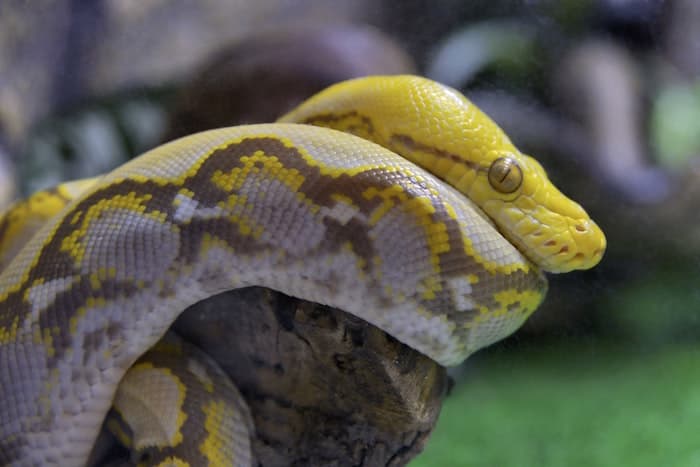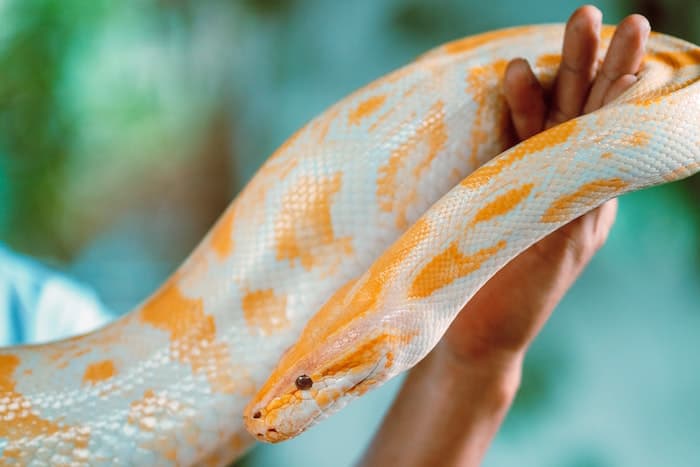Although fluffy or winged pets are some of the most common options, Pawsome Advice’s pet ownership statistics reveal that 50% of all pets in the U.S.A are currently exotic. This is because it’s actually become easier and more accessible to own and maintain pets like snakes! Now among the most popular exotic pets to own, snakes are beautiful, docile, and generally only require straightforward care. This is why even first-time exotic pet owners have found snakes to be some of the most charismatic animal companions.
That said, owning a pet snake still does require significant preparation. This is especially necessary if you’re new to pets, in general. In order to make this process less daunting and more concise, here’s a handy checklist that you can use to prepare for your slithery friend’s arrival:
Adequate Habitat
There’s no realistic way that a snake’s home in captivity will compare to the wild. However, that doesn’t mean you should settle for any enclosure. Although they may not show it, snakes are very influenced by their environment. If not provided with the right temperature, space, and accessories, snakes can feel depressed and sick.
With this in mind, before you even get your snake, you should already have their habitat fully decked out. To begin with, Ben Team notes that reptile habitats are better built off terrariums. This is because terrariums are built with features like a front-opening door and a screened top for security, access, and ventilation. Apart from the terrarium itself, the enclosure should also have a heating lamp, lighting, bedding, a hygrometer, and hiding spots. This ensures that your snake will feel comfortable with all the stimuli and support they need.
Correct Diet
Snakes cannot be fed ready-made food like kibble or canned wet food. As discussed in our previous article called “How to Take Care of a Pet Snake”, snakes only eat meat whole and alive. This comes either in the form of live mice, rats, other reptiles, or insects. While these can also be bought frozen for easier storage, snake food, in general, takes more effort to purchase, store, and prepare than regular pet food.
The plus side of a snake’s diet is that snakes don’t eat daily. Instead, most only need to eat a few times a month. At the same time, since snake diets are as natural as possible (unlike processed pet food), your snake won’t need vitamin and mineral supplements.
Pet Insurance
Considering that the expenses for the average pet already put 27% of all pet parents in debt, you can only imagine how financially taxing an exotic pet will be. That said, it will be beneficial for you and your snake to consider getting exotic pet insurance. In a recent guide, Sound Dollar explains that exotic pet insurance ensures that your snake will be protected should it fall ill or suffer an injury. This includes covering the costs for annual examinations, lab work, prescription medications, diagnostic testing, and even hospitalization. With this insurance in place, maintaining your snake’s health will be more convenient, accessible, and financially safe.
That said, exotic pet insurance doesn’t mean you won’t be shelling out any cash at all. Aside from the monthly premium, pet insurance works by simply reimbursing what you’ve already paid for. Thus you’ll still need to make initial payments. To optimize your exotic pet insurance, sign up for it while your pet is younger and healthier. Doing this will give you a lower premium and let you use it for longer.
Mental Preparedness
Snakes have very different temperaments. Therefore, you can’t expect them to be friendly or cuddly much like other pets. In many instances, snakes may even prefer to be left alone for long periods. As such, you may need to adjust your own expectations about your pet. Otherwise, you may just end up stressing out your snake or feeling frustrated by its behavior.
Keep in mind that snakes also have a much longer lifespan than other pets. As recently as 2020, the BBC reported that the oldest living snake in captivity was 62 years old. Even at this advanced age, the snake was also still able to asexually reproduce. Now, while your own snake may not lay eggs on its own or become as old as the aforementioned snake, you still need to consider that they’re a long-term commitment.
Though snakes may seem intimidating, they can make some of the best pets. Relatively independent and relaxed, snakes are lovely creatures that you can happily spend many decades with. Just remember that, as with any pet, snakes are precious living creatures, so they need your genuine dedication and love, above all else.


